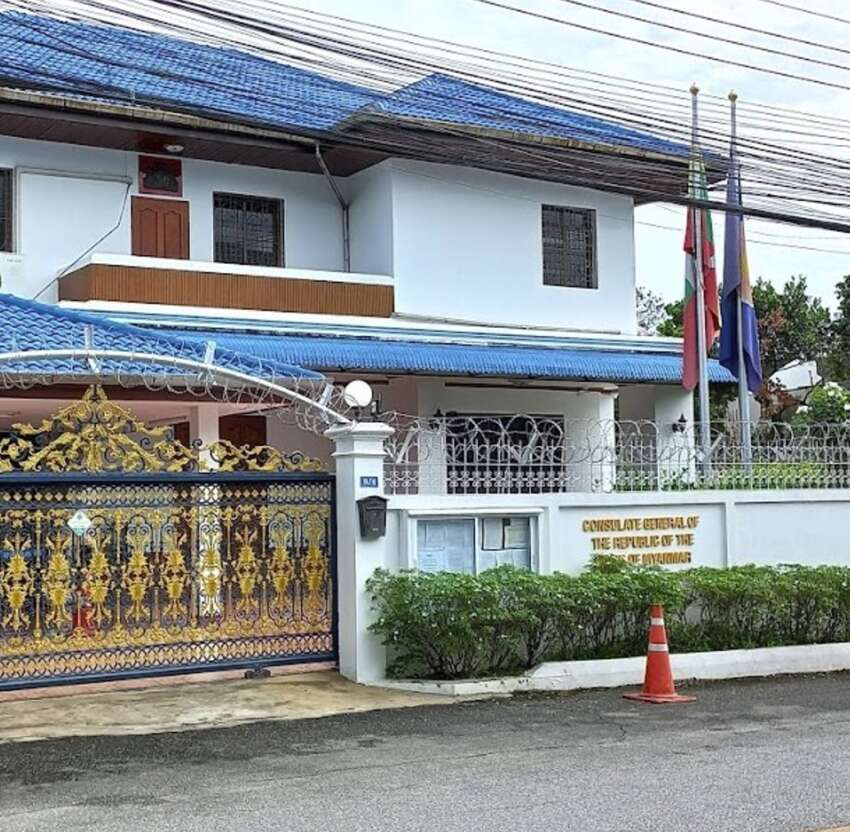
The Military Council’s Consulate Office in Chiang Mai announced on March 18 that Myanmar citizens residing in Thailand must submit recommendations from their ward administrators and police stations in Myanmar when seeking embassy endorsements for visa and stay permit extensions. Myanmar nationals living in Chiang Mai who wish to obtain embassy endorsements must submit copies of recommendations from their respective wards and police stations in Myanmar, along with the original TM30 form showing their current address in Thailand.
The Consulate Office has declared that it will no longer process any endorsements except for tourist visas and visa extension recommendations. Meanwhile, at the Myanmar Embassy in Bangkok, endorsements are being issued for bank account openings and driver’s license applications that are accepted by Thai authorities. While notary matters follow similar regulations to Chiang Mai, they accept black and white copies for documentation, and visa extensions do not require ward and police station recommendations, according to a source close to the Myanmar Embassy in Bangkok.
At the Military Council’s Consulate Office in Chiang Mai, applications for notary and various embassy endorsements are only permitted for Myanmar citizens with long-term residence permits in Thailand. For notary services, applicants must submit both original translated documents and color copies of all other documentation. The office has set a processing time of three days for regular embassy endorsements and up to fourteen days for notary certifications. These regulations will be implemented starting March 19, as announced by the Military Council’s Consulate Office in Chiang Mai.
This implementation of stricter regulations by the military council on Myanmar citizens living in Thailand is specifically targeting CDM staff and political activists to create difficulties, according to a CDM officer residing in Bangkok. He further explained that it would be virtually impossible for CDM staff and political activists to obtain recommendations from wards and police stations in Myanmar, indicating that this is a deliberate form of oppression by the military council.



